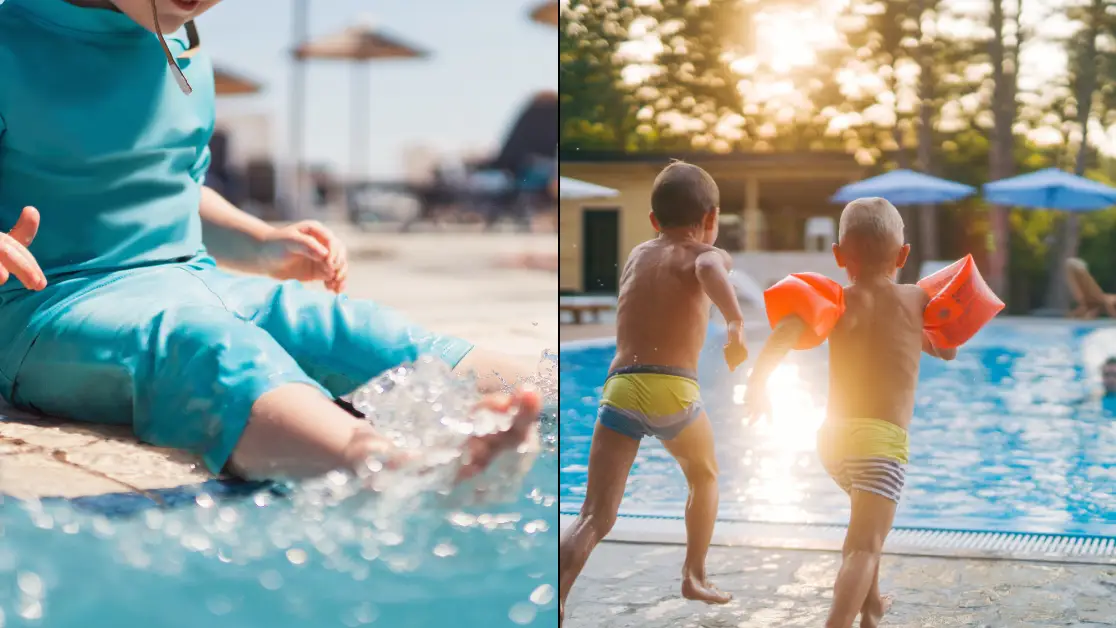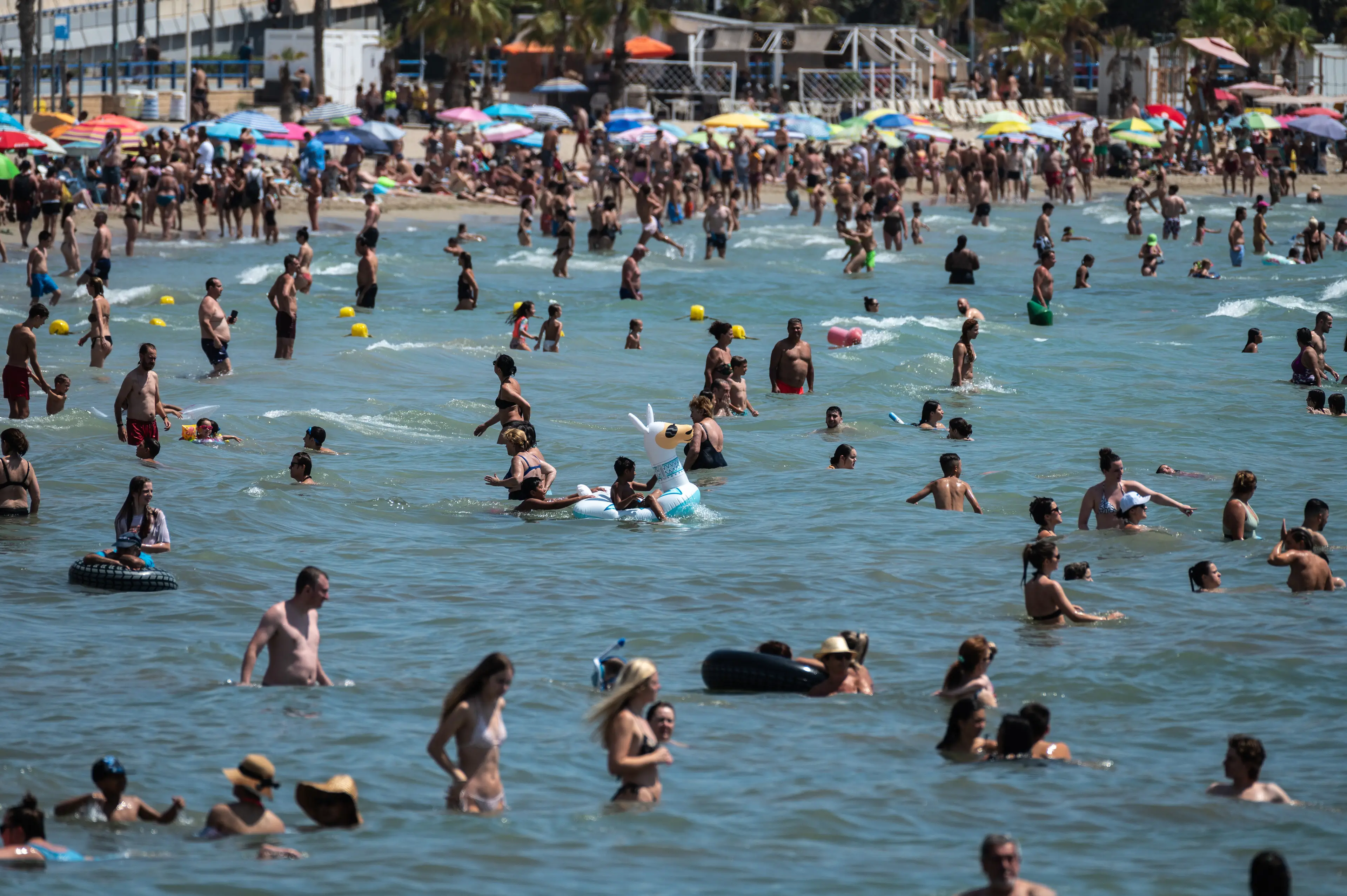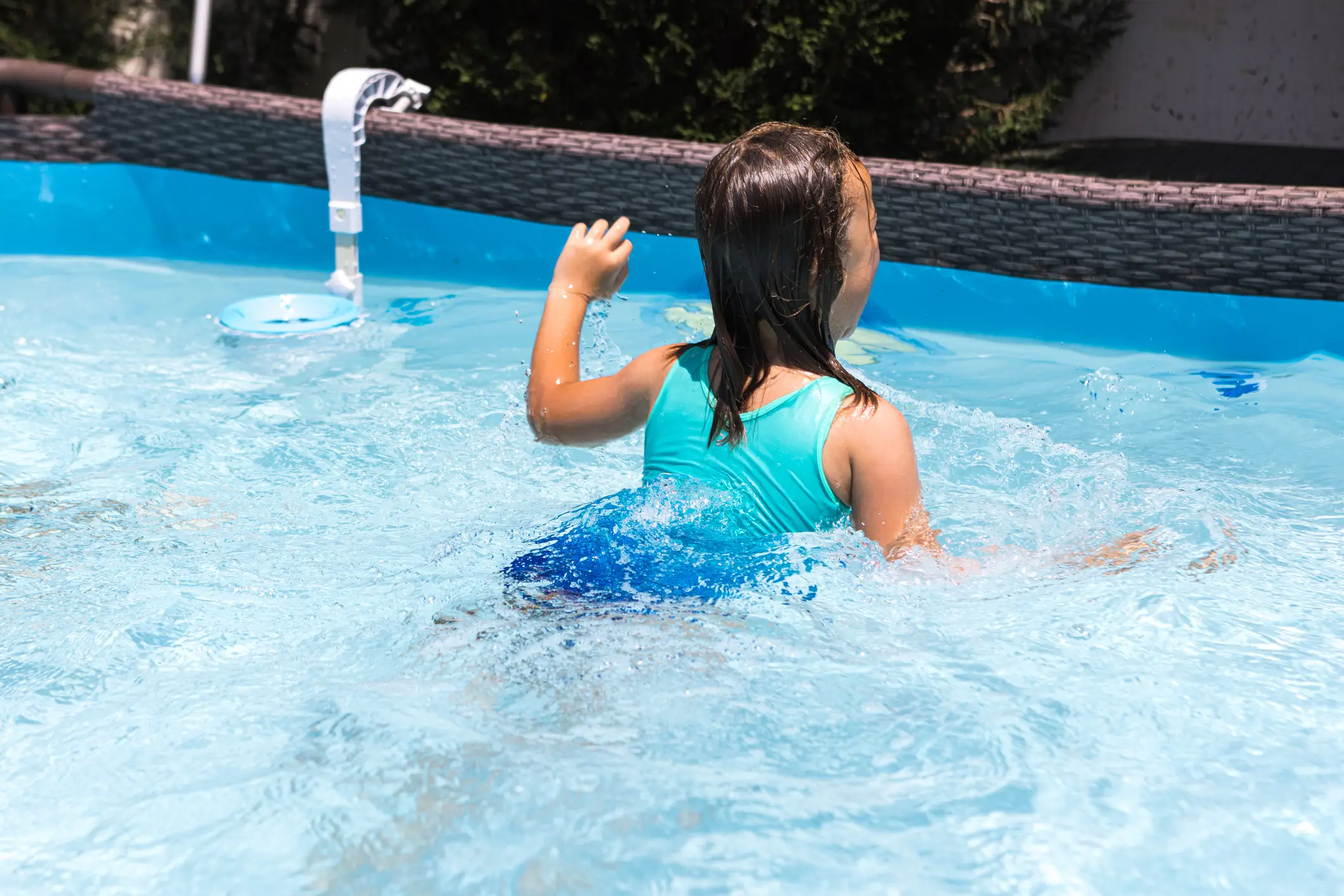
School's out for summer, or it pretty much is as this'll be the last week many students are there before they make it to the next year.
If the last week of term is anything like it was when I was still in school it'll consist largely of going to classes and watching the first hour or so of various films until it's time to go home.
Honestly, the year we realised we were better off bringing in DVDs of TV shows or stand-up comedy routines was a gamechanger.
Of course there will be certain teachers who insist on having lessons right up until the end of term or have come up with their own idea of what classes as a fun way to round off the term.
Advert
Anyhow, with the school holidays comes families going off on actual holidays, and an expert has said you shouldn't let your kids wear blue swimwear.

It's pretty reasonable to wonder why not, and there's quite a grim reason for it.
Speaking to The Sun, health expert Dr Helen Wall said that even two inches of water could pose a risk to young children.
She warned that children could drown in shallow water 'even if they can stand up' and said that you were better off dressing them in something that'd help you spot them quickly, so definitely not blue which might blend in with the water.
She said: "Drowning children don’t cry out for help, they disappear under the surface quietly.
"Never ever leave children unattended, and kit them out in bright swimwear – but not blue – so they can be seen under water."
The doc also advised that you talk to your kids about the dangers of open water swimming as taking the plunge could be a lot colder than expected and potentially result in 'cold water shock'.

Cold water shock is a serious danger to life, and if you're going for a holiday to the seaside this summer it could become an issue.
Average seawater temperature around the UK is 12°C, and the risk of cold water shock increases significantly in water that is 15°C or lower.
If you do run into trouble in the water the RNLI recommends that rather than treading water you ought to lie back with your ears submerged and try to control your breathing.
Once any initial shock of being in the water has passed you can then shout for help or try to swim out of danger.
Just a few changes like wearing easily noticeable swimwear and knowing what to do in the water can make all the difference.